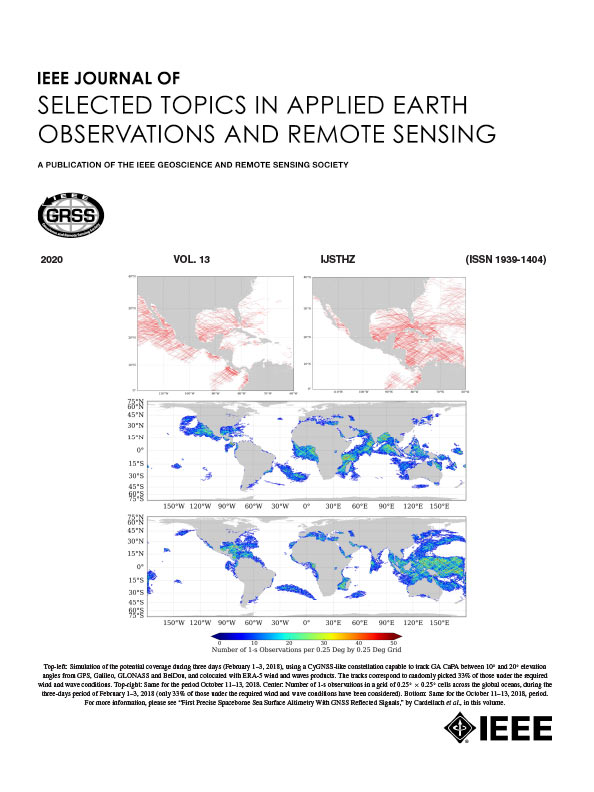A Label Refining Framework Based on Road Matching and Integration Algorithm for Road Extraction
IF 4.7
2区 地球科学
Q1 ENGINEERING, ELECTRICAL & ELECTRONIC
IEEE Journal of Selected Topics in Applied Earth Observations and Remote Sensing
Pub Date : 2024-10-28
DOI:10.1109/JSTARS.2024.3486744
引用次数: 0
Abstract
Road network plays an important role in the fields of navigation, urban planning, and transportation. Extracting road network data from imagery based on machine learning models is an efficient and economical method for obtaining road network data. In order to save labor costs, crowdsourced data can be employed to automatically acquire the labels for model training. In response to the current challenges in road extraction, such as the limited number of labeled samples, low precision of sample labels generated from crowdsourced data, and difficulty in obtaining accurate road label data, which lead to low-quality, incomplete, and inaccurate road extraction, this study proposes a label refining framework based on a road matching and integrate algorithm. Labels are generated from OpenStreetMap (OSM) vector data, and roads are extracted from very high resolution orthoimage using the U-net model. The extracted roads are then matched and integrated with the original data to generate refined labels, which are employed for further model training and road extraction. Experimental results demonstrate that this process can overcome the poor quality of samples directly generated from the OSM data, i.e., the label refining framework led to significant improvements with respect to the completeness, accuracy, and quality of the road network extraction results.基于道路匹配和整合算法的道路提取标签完善框架
路网在导航、城市规划和交通领域发挥着重要作用。基于机器学习模型从图像中提取路网数据是获取路网数据的一种高效而经济的方法。为了节省人力成本,可以利用众包数据自动获取用于模型训练的标签。针对目前道路提取中存在的挑战,如标签样本数量有限、众包数据生成的样本标签精度低、难以获得准确的道路标签数据等,导致道路提取质量低、不完整、不准确,本研究提出了一种基于道路匹配和整合算法的标签提炼框架。标签由 OpenStreetMap(OSM)矢量数据生成,道路则使用 U-net 模型从极高分辨率的正射影像中提取。然后将提取的道路与原始数据进行匹配和整合,生成细化标签,用于进一步的模型训练和道路提取。实验结果表明,这一过程可以克服直接从 OSM 数据中生成的样本质量差的问题,也就是说,标签提炼框架显著提高了道路网络提取结果的完整性、准确性和质量。
本文章由计算机程序翻译,如有差异,请以英文原文为准。
求助全文
约1分钟内获得全文
求助全文
来源期刊
CiteScore
9.30
自引率
10.90%
发文量
563
审稿时长
4.7 months
期刊介绍:
The IEEE Journal of Selected Topics in Applied Earth Observations and Remote Sensing addresses the growing field of applications in Earth observations and remote sensing, and also provides a venue for the rapidly expanding special issues that are being sponsored by the IEEE Geosciences and Remote Sensing Society. The journal draws upon the experience of the highly successful “IEEE Transactions on Geoscience and Remote Sensing” and provide a complementary medium for the wide range of topics in applied earth observations. The ‘Applications’ areas encompasses the societal benefit areas of the Global Earth Observations Systems of Systems (GEOSS) program. Through deliberations over two years, ministers from 50 countries agreed to identify nine areas where Earth observation could positively impact the quality of life and health of their respective countries. Some of these are areas not traditionally addressed in the IEEE context. These include biodiversity, health and climate. Yet it is the skill sets of IEEE members, in areas such as observations, communications, computers, signal processing, standards and ocean engineering, that form the technical underpinnings of GEOSS. Thus, the Journal attracts a broad range of interests that serves both present members in new ways and expands the IEEE visibility into new areas.

 求助内容:
求助内容: 应助结果提醒方式:
应助结果提醒方式:


